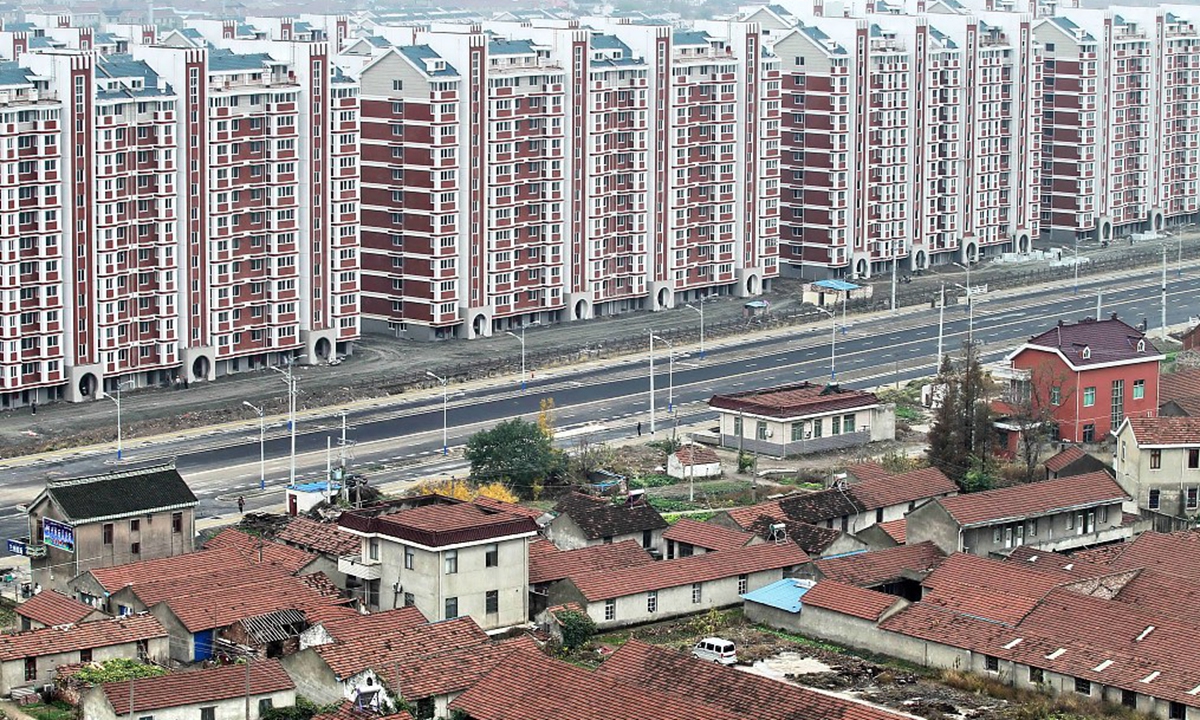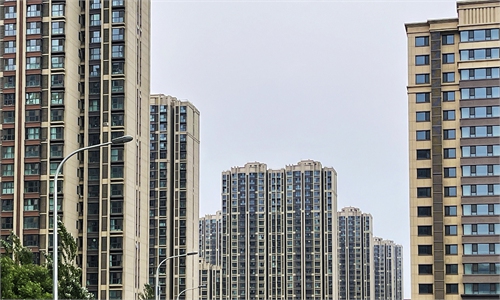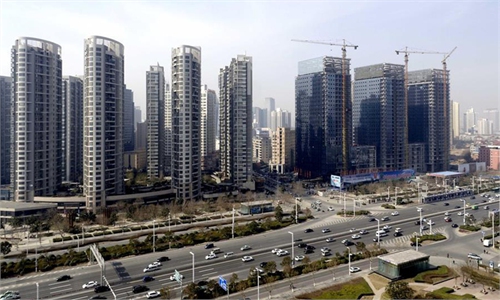
Housing market Photo:VCG
The swift rollout and implementation of multiple favorable real estate policies have led to a noticeable rebound in both second-hand and new home sales in major Chinese cities. Experts attribute this trend to these incentives' tangible impact on invigorating demand and stabilizing the market.
In Shanghai, data collected by 58 Anjuke Institute showed that as of Saturday, the total volume of second-hand home transactions surpassed 20,000 units, making it the fifth time this year and the quickest month in which a record-high figure was reached.
The institute also predicted that Shanghai's total second-hand home transactions in November will surpass June's 26,400 units, setting a new record, according to Shanghai-based media outlet The Paper.
In the new home market, on November 24, a new residential project near a metro hub in Longgang district, Shenzhen, South China's Guangdong Province, saw its first batch of 214 units sold out in less than two hours, achieving sales of 1.077 billion yuan ($148.4 million), local media Shenzhen News reported.
Since late September, a series of housing incentives has been introduced, including cuts in reserve requirements, interest rates, down payments, and mortgage loan interest rates, with a new round of tax-cut stimulus policies rolling out subsequently.
On November 13, three Chinese ministries jointly announced increased preferential tax rates on the personal purchase of household housing.
All four first-tier cities, including Shanghai, Beijing, Shenzhen and Guangzhou, announced they would eliminate the distinction between ordinary and non-ordinary housing starting on December 1, a move that will unify favorable tax policies for the two categories.
In the first 20 days of November, many cities have seen a significant growth in new home transactions following tax reductions, with increases of over 15 percent in cities like Guangzhou, Chengdu, Suzhou and Hefei, and within 10 percent in Wuhan and Ningbo, according to a report released by the China Real Estate Information Corp, a provider of real estate information.
Industry experts noted that both primary and improved housing demand is steadily improving, driven by growing transactions in first-tier cities and optimized supply-demand structures. They said this signals a stabilizing and recovering housing market, underscoring the positive impact of the new policies.
"The latest stimulus package plays a crucial role in reducing real estate transaction costs and enhancing residents' purchasing power, which will continue to stimulate market stability and vitality," Hui Jianqiang, a veteran industry analyst, told the Global Times on Tuesday.
Yan Yuejin, research director at Shanghai-based E-house China R&D Institute, said that the current market recovery is sustainable. "As the policy effects continue to take hold, sales activities in major cities are poised to pick up, setting a positive trend for other cities and potentially boosting overall market sales and nationwide growth," Yan added.
The latest National Bureau of Statistics data reveals that in October, new house prices saw month-on-month increases in seven out of 70 major cities, up by four cities compared with September. Additionally, second-hand house prices rose in eight cities month-on-month, double the previous month's figures.
Hui also pointed to the supply-demand structures, saying transactions of lower-priced "old and small" properties have seen more significant growth due to the new preferential policies, which are designed not only to stabilize market growth but also to enhance people's livelihoods, particularly by addressing the housing needs of new urban residents.
Stabilizing the real estate market is crucial for maintaining economic and employment stability, and it will strongly support the realization of China's economic growth targets and help foster healthier, high-quality development, Hui added.



